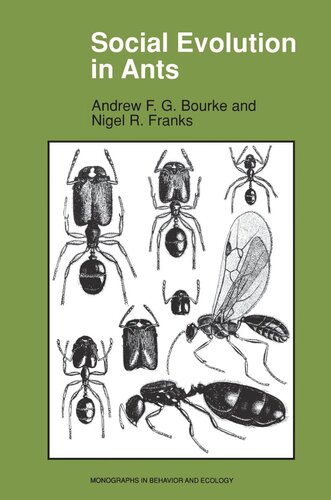

Most ebook files are in PDF format, so you can easily read them using various software such as Foxit Reader or directly on the Google Chrome browser.
Some ebook files are released by publishers in other formats such as .awz, .mobi, .epub, .fb2, etc. You may need to install specific software to read these formats on mobile/PC, such as Calibre.
Please read the tutorial at this link: https://ebookbell.com/faq
We offer FREE conversion to the popular formats you request; however, this may take some time. Therefore, right after payment, please email us, and we will try to provide the service as quickly as possible.
For some exceptional file formats or broken links (if any), please refrain from opening any disputes. Instead, email us first, and we will try to assist within a maximum of 6 hours.
EbookBell Team

4.0
96 reviewsBiologists since Darwin have been intrigued and confounded by the complex issues involved in the evolution and ecology of the social behavior of insects. The self-sacrifice of sterile workers in ant colonies has been particularly difficult for evolutionary biologists to explain. In this important new book, Andrew Bourke and Nigel Franks not only present a detailed overview of the current state of scientific knowledge about social evolution in ants, but also show how studies on ants have contributed to an understanding of many fundamental topics in behavioral ecology and evolutionary biology.
One of the substantial contributions of Social Evolution in Ants is its clear explanation of kin selection theory and sex ratio theory and their applications to social evolution in insects. Working to dispel lingering skepticism about the validity of kin selection and, more broadly, of "selfish gene" theory, Bourke and Franks show how these ideas underpin the evolution of both cooperation and conflict within ant societies. In addition, using simple algebra, they provide detailed explanations of key mathematical models. Finally, the authors discuss two relatively little-known topics in ant social biology: life history strategy and mating systems.
This comprehensive, up-to-date, and well-referenced work will appeal to all researchers in social insect biology and to scholars and students in the fields of entomology, behavioral ecology, and evolution.